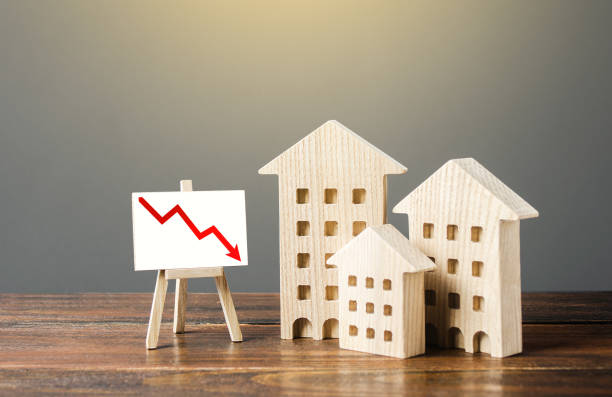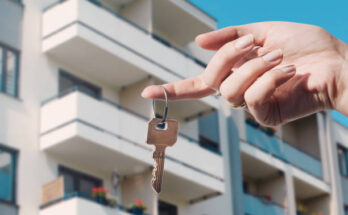Homeownership has long been considered a quintessential element of the American Dream, symbolizing success, stability, and financial security. However, beneath the surface of this widely embraced ideal lies a complex and often overlooked truth: homeownership is not always the advantageous investment it is made out to be. In this article, we will delve into the less glamorous side of homeownership, exploring the potential drawbacks and questioning the conventional wisdom that touts it as an unequivocal marker of success.
The Financial Burden:
 (Photo from iStock)
(Photo from iStock)
One of the primary arguments against homeownership revolves around the significant financial burden it places on individuals and families. While it is true that purchasing a home can be a solid long-term investment, the initial costs can be staggering. The down payment, closing costs, and ongoing maintenance expenses can strain finances, particularly for first-time homebuyers. Moreover, the housing market’s volatility poses a constant risk, potentially leading to property value depreciation and leaving homeowners with a significant loss on their investment.
Rigidity and Lack of Mobility:
Homeownership ties individuals to a specific location, limiting their mobility and flexibility. In an increasingly dynamic job market, where career opportunities may arise in different cities or even countries, being anchored to a property can hinder professional growth. Renting provides the freedom to relocate without the constraints of selling or dealing with the complexities of property management, making it a more adaptable option for those prioritizing career mobility.
Hidden Costs and Maintenance Headaches:
Owning a home comes with a plethora of hidden costs that are often underestimated by prospective buyers. Property taxes, homeowners association (HOA) fees, and insurance premiums can add up, making the overall cost of homeownership substantially higher than the initial purchase price suggests. Additionally, the responsibility of maintenance and repairs falls squarely on the homeowner’s shoulders. From leaky roofs to malfunctioning HVAC systems, the costs of keeping a property in good condition can be both unpredictable and financially draining.
Market Fluctuations and Economic Downturns:
The real estate market is inherently cyclical, with periods of growth followed by downturns. Homeowners are directly impacted by these fluctuations, and during economic recessions, property values can plummet, leaving many with mortgages that exceed the value of their homes. The housing market crash of 2008 serves as a stark reminder of the risks associated with homeownership, as millions faced foreclosure and financial ruin. Renters, on the other hand, are insulated from the direct impact of market downturns and have the flexibility to navigate changing economic landscapes more easily.
Opportunity Cost of Tied-Up Capital:
 (Photo from iStock)
(Photo from iStock)
Investing in a home requires a significant amount of capital that could potentially be utilized more strategically elsewhere. Critics argue that the funds used for a down payment, mortgage payments, and maintenance expenses could be diversified into alternative investments with higher returns. While the real estate market historically appreciates over time, the opportunity cost of tying up capital in a single, illiquid asset can be substantial, especially when considering the potential gains in a well-managed investment portfolio.
The Illusion of Equity:
Homeownership is often lauded for building equity, but this can be a deceptive notion. Equity is not a liquid asset, and accessing it often involves selling the property or taking out a loan against it. The process can be time-consuming and subject to market conditions, making it less versatile than other forms of investment. Moreover, the assumption that property values will consistently appreciate over time is not guaranteed, as witnessed during economic downturns when homeowners find themselves with negative equity.
Social and Lifestyle Considerations:
Advocates of homeownership often emphasize the sense of pride and stability it brings to individuals and families. However, this perspective overlooks the fact that personal circumstances and preferences vary widely. Some individuals may prefer the flexibility of renting, allowing them to explore different neighbourhoods. The changing dynamics of modern lifestyles, with an increasing emphasis on experiences over possessions. Challenge the traditional notion that homeownership is synonymous with a fulfilling and successful life.
Environmental Impact:
Larger homes and properties typically require more resources for construction and maintenance, contributing to a higher ecological footprint. In contrast, rental properties, especially in urban environments, often utilize existing infrastructure more efficiently, promoting sustainable living practices. With climate change and environmental conservation becoming global priorities. The environmental implications of homeownership are a relevant consideration in the ongoing discourse.
Conclusion:
While homeownership has been a cornerstone of the American Dream and remains a goal for many. It is essential to approach it with a critical mindset. The financial burdens, lack of mobility, hidden costs,. And vulnerability to market fluctuations raise valid concerns about the wisdom of investing in real estate. Renting, once considered a temporary or inferior housing option, is gaining traction as a viable and pragmatic choice. Offering individuals the flexibility to adapt to changing circumstances without shouldering the potential downsides of homeownership. Ultimately, the decision to buy or rent should be based on individual circumstances, financial goals. And lifestyle preferences, rather than succumbing to societal expectations or the allure of a traditional ideal.
While homeownership has been a cornerstone of the American Dream and remains a goal for many. It is essential to approach it with a critical mindset. The financial burdens, lack of mobility, hidden costs. And vulnerability to market fluctuations raise valid concerns about the wisdom of investing in real estate. Renting, once considered a temporary or inferior housing option, is gaining traction as a viable and pragmatic choice. Offering individuals the flexibility to adapt to changing circumstances without shouldering the potential downsides of homeownership. Ultimately, the decision to buy or rent should be based on individual circumstances, financial goals, and lifestyle preferences. Rather than succumbing to societal expectations or the allure of a traditional ideal.
In conclusion, while homeownership remains a cherished goal for many, acknowledging its potential downsides fosters a more realistic and nuanced understanding of housing choices. Empowering individuals to make informed decisions based on their circumstances ensures a path to sustainable and fulfilling living.




